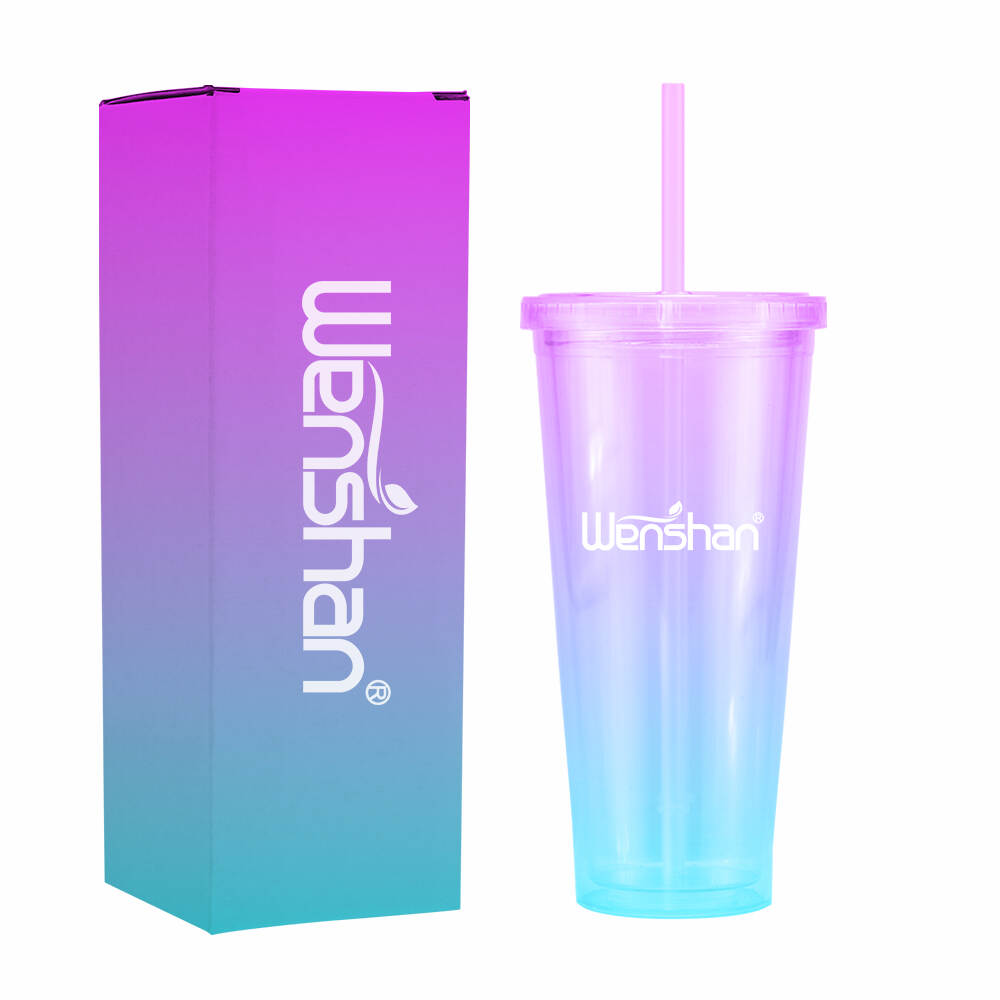

In today's fast-paced world, finding the perfect balance between convenience and sustainability can often be a challenge, especially when it comes to our daily drinking habits. Plastic straw cups have become ubiquitous, offering portability and ease of use, but understanding the materials they're made of is crucial for both health and environmental reasons. Today, let's delve into the specifics of a plastic straw cup featuring a Polystyrene (PS) body and an Acrylonitrile Styrene (AS) lid, exploring their durability, safety, and potential eco-conscious alternatives.
Polystyrene, or PS, is a versatile plastic commonly used in food packaging due to its lightweight, high impact resistance, and cost-effectiveness. When it comes to plastic straw cups, PS offers a sturdy yet lightweight construction that can withstand daily use and the occasional drop. Importantly, when sourced from reputable manufacturers, PS can be made BPA-free (Bisphenol A), a chemical known to potentially affect hormone function in humans. Look for "BPA-free" labels to ensure your cup is safe for use with both hot and cold beverages.
Acrylonitrile Styrene, or AS, is another plastic frequently employed in food contact applications, particularly for lids and transparent containers. AS is known for its clarity, durability, and ability to withstand temperature fluctuations, making it an ideal choice for the lids of plastic straw cups. Like PS, AS can also be formulated to be BPA-free, ensuring that your beverage stays pure and uncontaminated as you sip. The transparency of AS also allows for easy monitoring of drink levels and ensures you never run out of your favorite beverage unexpectedly.
While both PS and AS are widely used and generally considered safe for food contact when used as intended, it's important to note that all plastics can degrade over time, especially when exposed to heat or harsh chemicals. To maintain the integrity of your cup and ensure continued safety, avoid placing it in direct sunlight or extreme temperatures, and always follow cleaning instructions carefully.
As environmental concerns rise, many consumers are seeking more sustainable options. Consider switching to reusable stainless steel or glass straw cups with silicone or bamboo lids. These materials are not only durable and long-lasting but also significantly reduce waste compared to disposable plastic cups. Additionally, reusable cups often come with detachable, easy-to-clean straws, making them a convenient and eco-conscious choice for on-the-go drinking.
In conclusion, plastic straw cups made with PS and AS can be a practical and safe choice for everyday use, provided they are sourced from reputable manufacturers and used with care. However, embracing eco-friendly alternatives like reusable cups can help reduce our reliance on single-use plastics and contribute to a healthier planet. Ultimately, the choice is yours, but with a little knowledge and consideration, we can all make more informed decisions that benefit both ourselves and the environment.
Email cannot be empty
Password cannot be empty
Email format error
Email cannot be empty
Email already exists
6-20 characters(letters plus numbers only)
The password is inconsistent
Email format error
Email cannot be empty
Email does not exist
6-20 characters(letters plus numbers only)
The password is inconsistent